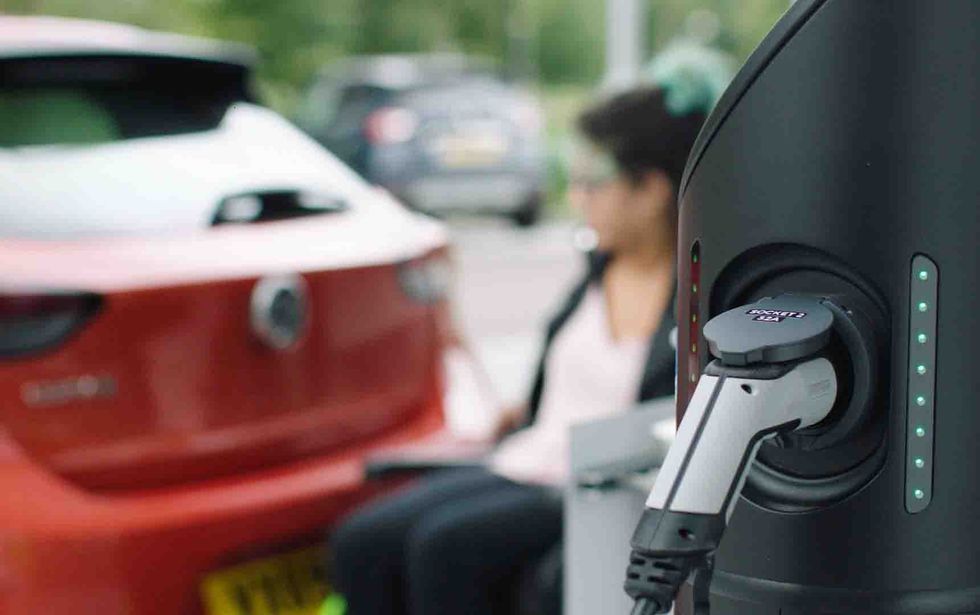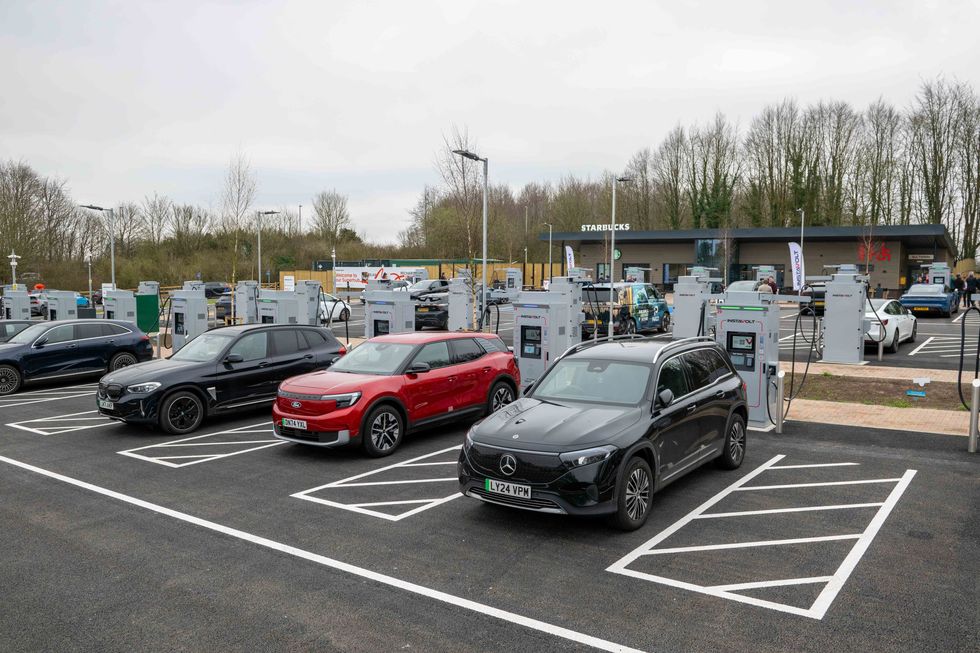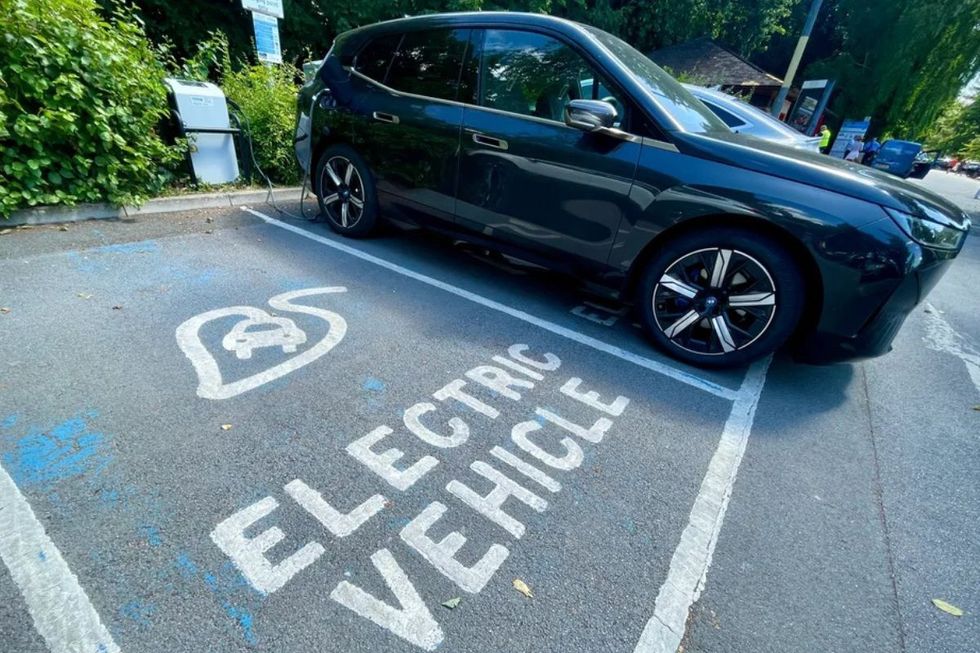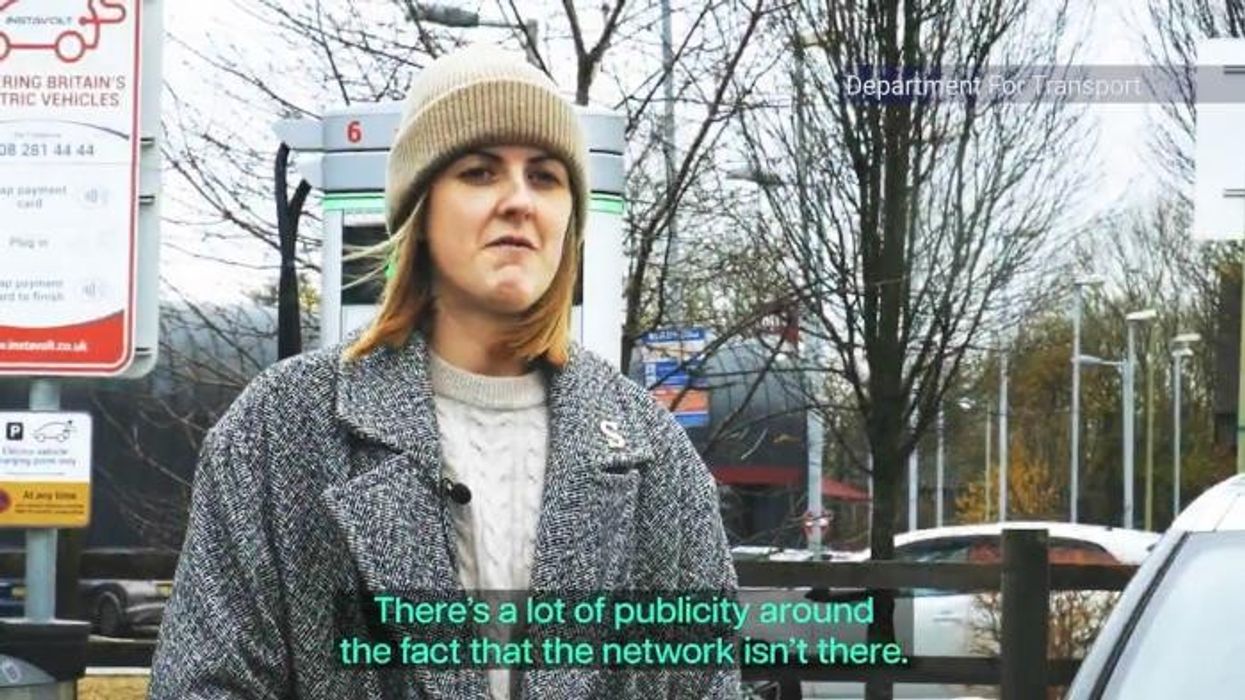Labour’s electric car plan falls short as millions face accessibility issues - 'Put off buying'

The Electric Vehicle Association England has called on Labour to make charging EVs more accessible
Don't Miss
Most Read
Latest
A groundbreaking study has exposed significant barriers preventing disabled motorists from embracing electric vehicles, with more than half struggling to handle the weight of public charging cables.
Research published by the Electric Vehicle Association England revealed that 51 per cent of drivers with disabilities find ultra-rapid charging cables hard or extremely hard to manage, compared with just 21 per cent of other motorists.
The findings emerge as the UK’s charging network expands rapidly, yet only 2.3 per cent of the nation's 80,000 public charge points meet accessibility standards.
With 1.35 million disabled motorists expected to depend on public charging by 2035, campaigners have now warned that inadequate infrastructure could lock millions out of the electric vehicle revolution.
Do you have a story you'd like to share? Get in touch by emailing motoring@gbnews.uk

By 2035, 1.35 million drivers with disabilities will need to access an electric car charger
| MOBILITY FOUNDATIONThe national study surveyed 249 electric vehicle drivers between April and May 2025, with 73 participants identifying as having physical or mental health conditions.
The data revealed striking disparities across different charging speeds, with 53 per cent of disabled motorists experiencing difficulties with rapid chargers up to 50kW compared to only 10 per cent of non-disabled drivers.
Even slower charging infrastructure posed problems, with 28 per cent of disabled respondents struggling with fast chargers up to 22kW.
Ultra-rapid chargers, delivering power up to 350kW, proved most problematic, with 36.7 per cent of disabled drivers rating the cables as very difficult to manage.

Experts have warned that ultra-rapid chargers can be too heavy for some drivers with disabilities
| PASurvey participants shared harrowing accounts of their struggles with charging infrastructure. "Several times I've almost overbalanced with the weight of the cable; I needed to ask for help a few weeks ago at a service," one respondent revealed.
Another driver explained their family's predicament: "My wife is disabled and could currently not manage any rapid or ultra-rapid cables at all - she would need a stronger cable support solution than I have seen."
Balance issues compounded the difficulties for some users. "Everyone is different, so difficult to generalise, but although I can walk short distances, I've problems with my balance, so I find some are so heavy I can't hold and hold onto a car or unit for balance," a participant noted.
The barriers extend beyond current drivers. "A disabled relative with low upper-body strength has struggled to connect a CCS cable to my car. This has put her off buying an EV," another respondent shared.
LATEST DEVELOPMENTS:
The UK’s charging infrastructure has grown exponentially, with new charge points installed every 29 minutes according to Government data.
Despite this expansion, accessibility remains critically neglected, with a Vauxhall study conducted last year finding that merely 2.3 per cent of public chargers are suitable for disabled users.
The rollout particularly favours high-speed infrastructure, with ultra-rapid charger numbers jumping 27 per cent between 2023 and 2024, rising from 3,411 to 4,353 units.
These faster chargers require thicker, heavier cables to handle increased power loads, exacerbating accessibility challenges.
 There are now more than 82,000 electric vehicle chargers across the UK | GETTY
There are now more than 82,000 electric vehicle chargers across the UK | GETTYAn estimated 7.4 to 9.9 million UK households lack private charging facilities, making public infrastructure essential. By 2035, approximately 1.35 million disabled individuals will need to rely partially or entirely on public charging networks, highlighting the urgency of addressing current shortcomings.
Vicky Edmonds, EVA England's chief executive, urged parliamentarians to amend the Planning and Infrastructure Bill currently progressing through the Lords.
"A few targeted changes to the Planning and Infrastructure Bill currently making its way through Parliament, for instance, could provide the additional guarantees drivers with disabilities urgently need," she stated.
The proposed amendment would grant the Government the right to enforce accessibility requirements, though Ministers rejected similar proposals during the Commons stage.









